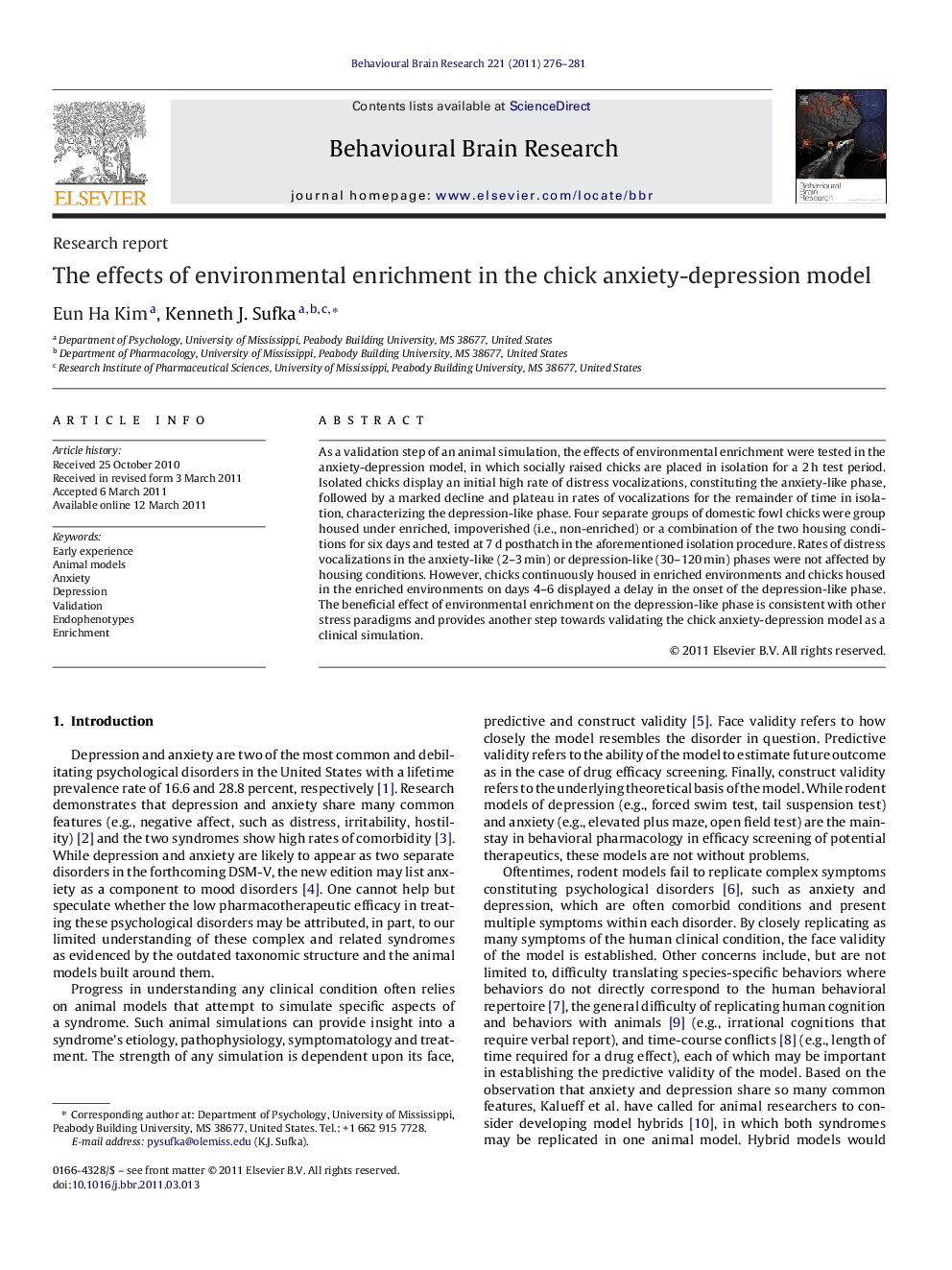| Article ID | Journal | Published Year | Pages | File Type |
|---|---|---|---|---|
| 4313701 | Behavioural Brain Research | 2011 | 6 Pages |
As a validation step of an animal simulation, the effects of environmental enrichment were tested in the anxiety-depression model, in which socially raised chicks are placed in isolation for a 2 h test period. Isolated chicks display an initial high rate of distress vocalizations, constituting the anxiety-like phase, followed by a marked decline and plateau in rates of vocalizations for the remainder of time in isolation, characterizing the depression-like phase. Four separate groups of domestic fowl chicks were group housed under enriched, impoverished (i.e., non-enriched) or a combination of the two housing conditions for six days and tested at 7 d posthatch in the aforementioned isolation procedure. Rates of distress vocalizations in the anxiety-like (2–3 min) or depression-like (30–120 min) phases were not affected by housing conditions. However, chicks continuously housed in enriched environments and chicks housed in the enriched environments on days 4–6 displayed a delay in the onset of the depression-like phase. The beneficial effect of environmental enrichment on the depression-like phase is consistent with other stress paradigms and provides another step towards validating the chick anxiety-depression model as a clinical simulation.
► Anxiety-depression continuum modeled in domestic fowl chicks. ► Validation of an animal simulation of a human clinical disorder. ► Enrichment effects on the delayed onset of the depression-like phase. ► Enrichment mitigates effects of isolation and depressive-like behavior. ► Later enrichment produces greater mitigating effects compared to early enrichment.
